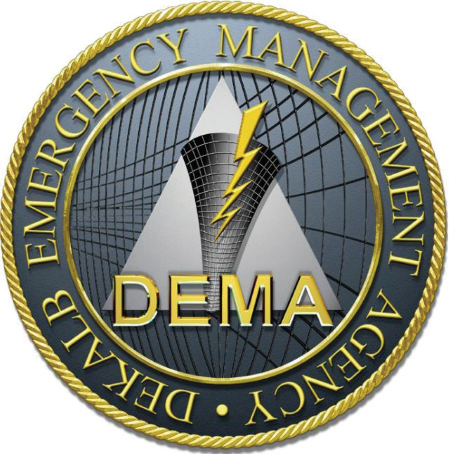Warming and Cooling Centers
The criteria for activating this plan during extreme temperature conditions are as follows:
HEAT | COLD | |
|
|
Local authorities are tasked with identifying and designating facilities equipped with heating and/or air conditioning where individuals can seek temporary refuge during extreme temperature events, challenging travel conditions, or power outages to escape hazardous weather. These Extreme Temperature Centers offer limited services beyond what is typically available in the building. They may operate during regular business hours or extend their hours based on the situation and demand. Examples of such centers include libraries, community centers, and senior centers.
Emergency Support Function ESF#6 Human Services
The DeKalb County Emergency Support Function. The DeKalb County Emergency Operations Plan (EOP) is a crucial document that highlights Emergency Support Function (ESF) #6, dedicated to Mass Care and Sheltering. This section is essential for overseeing emergency shelter operations in DeKalb County, GA. It provides comprehensive sheltering strategies and an operational framework for disaster-related sheltering in the region. Furthermore, it addresses the utilization of extreme temperature centers during severe heat or cold spells and includes facilities that provide relief to both residents and visitors of DeKalb County. While the Emergency Operation Plan (EOP) itself will not be attached to the webpage, its significance is summarized.
| Warming Centers |
|
| Cooling Centers: Open Monday through Friday, during regular operational periods. For weekend operational time please contact: (404) 334-3610 |
|
|
Resources to Support Preparedness Efforts
- Extreme Heat
- Be prepared for extreme heat
- A Guide for Alerts and Warnings
- Who is at risk to extreme heat - National Integrated Heat Health Information System
- Winter Weather
- Be prepared for a winter storm
- A Guide for Alerts and Warnings
- Stay Safe in the Extreme Cold
Resource Links-Specific Weather Hazards for your Area
National Weather Service Peachtree City/Atlanta
(Our local weather office that issues weather products for DeKalb County)
Flooding:
National Weather Service Local Flood Gauges
National Weather Service Flood Safety
Centers for Disease Control Flood Safety
FEMA Flood Safety
Floodsmart National Flood Insurance Program (FEMA)
Georgia Flood Mapping
DeKalb County Floodplain Management
Winter Weather:
National Weather Service Winter Weather Safety
FEMA Winter Weather and Extreme Cold Safety
Centers for Disease Control Winter Weather Safety
AAA Winter Weather Driving Tips
Severe Thunderstorms and Lightning:
National Weather Service Severe Thunderstorm Safety
FEMA Severe Thunderstorms and Lightning Safety
Centers for Disease Control Lightning Safety and Statistics
Tornadoes:
National Weather Service Tornado Safety
FEMA Tornado Safety
Centers for Disease Control Tornado Safety
